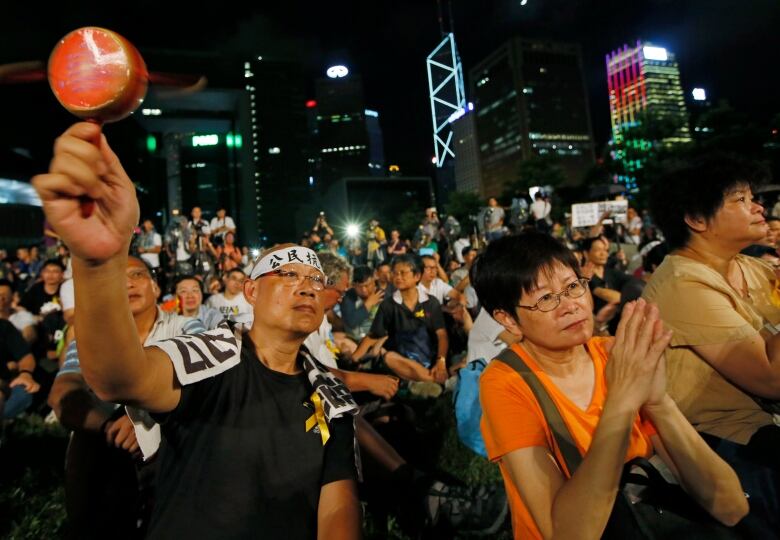China rejects open nominations for Hong Kong leadership
Democracy activists say nominating committee that will choose leader is beholden to China
China's legislature on Sunday ruled against allowing open nominations in elections for Hong Kong's leader, a decision that promises to ignite political tensions in the Asian financial hub.
The legislature's powerful Standing Committee ruled that all candidates for chief executive must receive more than half of the votes from a special nominating body before going before voters. Democracy activists in the Asian financial hub responded by saying that a long-threatened mass occupation of the heart of the city "will definitely happen."
Activists have also decried the nominating committee held up by Beijing as beholden to Chinese leaders and were mobilizing to stage massive protests against the decision.
Following the committee's widely expected decision, pro-democracy supporters rallied in a park in front of Hong Kong government headquarters.
Li Fei, deputy secretary general of the National People's Congress' Standing Committee, told a news conference that openly nominating candidates would create a "chaotic society."
"These rights come from laws;they don't come from the sky," he said. "Many Hong Kong people have wasted a lot of time discussing things that are not appropriate and aren't discussing things that are appropriate."
Central government to appoint chief executive
In its decision, the committee said: "Since the long-term prosperity and stability of Hong Kong and the sovereignty, security and development interests of the country are at stake, there is a need to proceed in a prudent and steady manner."
It said the 1,200-member nominating committee would select two or three candidates. After one is selected through universal suffrage, the chief executive-elect "will have to be appointed by the Central People's Government."
Hong Kong has enjoyed substantial political autonomy since returning from British to Chinese rule in 1997. Chinese leaders agreed then that the chief executive would be chosen by "universal suffrage" in 2017, language pro-democracy activists say shows Beijing hasn't kept its promises.
Rival protests
Already, activists in Hong Kong were laying out their next steps after the expected decision, with the most high-profile protest group, called Occupy Central, calling for a rally Sunday night in the city's centre.
Occupy Central has threatened to shut down the city's financial district with a massive sit-in if Beijing doesn't allow completely open elections for chief executive.

Pro-Beijing activists held their own march two weeks ago in Hong Kong denouncing Occupy Central as dangerous to stability in the city.
Political tensions spiked in June when Chinese officials released a policy "white paper" declaring that Hong Kong's "high degree of autonomy ... comes solely from the authorization by the central leadership."
Many read the policy paper as asserting Beijing's dominance of Hong Kong's affairs and hit the streets and the Internet in protest. Occupy Central drew Beijing's rebuke by organizing an online referendum that drew a reported 800,000 votes on how to pick the city's chief executive.
On Sunday, organizers of a similar referendum in the neighboring Chinese-controlled city of Macau said 95 percent of 8,688 people had voted in favour of its leader being elected by universal suffrage in 2019. Macau's incumbent leader, Fernando Chui, was elected to a second five-year term by a Beijing-friendly committee on Sunday.












_(720p).jpg)


 OFFICIAL HD MUSIC VIDEO.jpg)
.jpg)



























































































